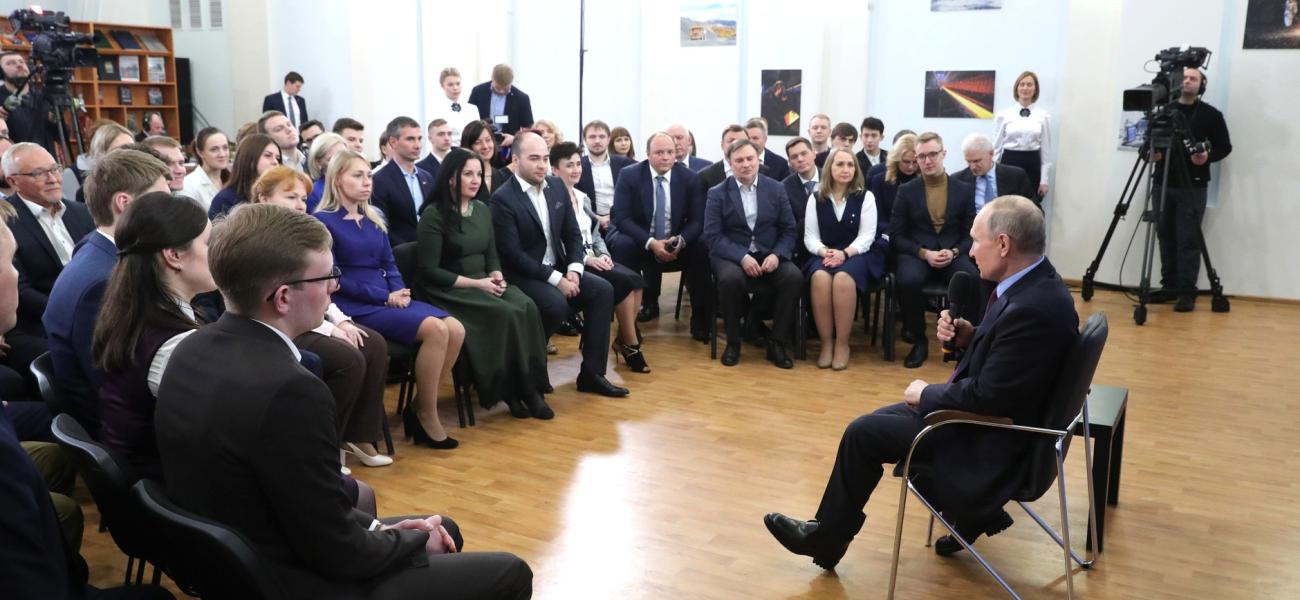In the Thick of It
A blog on the U.S.-Russia relationship
Russians See Putin as More of a Champion of the Oligarchs, Polls Show
Russians have come to think that President Vladimir Putin represents the interests of oligarchs above everyone else, according to the latest Levada Center poll. Thirty-eight percent of respondents in the March 2020 national survey said Putin is a champion of the oligarchs, a perception that has been rising since 2001. This is the first time oligarchs have overtaken “siloviki"—members of Russia’s so-called power agencies—as the top group whose interests Putin represents, which 37 percent of respondents chose in the 2020 poll (see Table 1). The shift is remarkable, given the previously popular view that Putin, a former KGB agent, upon becoming president, was putting the interests of security, intelligence and defense agencies first. (In fact, a smiling Putin told a meeting of the Federal Security Service top brass less than a fortnight after becoming acting president of Russia: “A group of FSB colleagues dispatched to work undercover in the government has successfully completed its first mission.”)
Third on the list in Levada’s most recent poll are government officials and bureaucrats, with 28 percent of respondents saying Putin represents their interests. The middle class, heads of large enterprises and ordinary people have hovered in the middle of the pack since 2000, with 18 percent, 17 percent and 16 percent, respectively, in the most recent poll. Directors/CEOs of large enterprises rank fourth on the list of groups Putin represents, according to the March 2020 poll. The share of Russians who hold that view has declined from 25 percent in 2017 to 17 percent in 2020, but it is still higher than the share of Russians who believe Putin is representing the interests of all Russians. The view that Putin is a champion of all Russians “without exception” has waned over the past three years. That view peaked at 17 percent in 2016- 2017, but then shrank by more than half to a mere 9 percent in 2020. While Putin is now seen more as a champion of the oligarchs than the siloviki, most Russians still believe Putin relies most upon the latter in his rule. Forty-six percent of respondents in 2020 hold that view (see Table 2). Oligarchs and government officials trailed behind with 37 percent and 27 percent, respectively.
The share of people who used explicitly positive words to describe their feelings about Putin, including “delight” and “like,” peaked in 2015 following the seizure of Crimea. Thirty-seven percent of respondents in 2015 said they liked Putin and 10 percent said they were delighted by him (see Table 3). However, in 2020, these positive attitudes declined to their lowest levels since 2013. In the most recent poll, only 20 percent of respondents said they liked Putin, 9 percent were delighted by him and most, 27 percent, simply said they couldn’t say anything bad about him.
Putin's experience is seen as his best asset by far by the respondents of Levada’s polls, with 42 percent choosing experience as his most attractive quality (see Table 4). Curiously, his foreign policy, which many international experts see as his forte, is not even in the top five of Putin’s most attractive qualities in the eyes of Russians, garnering only 12 percent—30 percent less than his experience.
As for what Russians dislike about their president, Levada’s most recent poll shows a tie between corruption and a lack of familiarity with the interests of the people, both with 14 percent (see Table 5). However, in 2018, 16 percent of respondents said they most disliked Putin’s lack of familiarity with the people’s interests, overtaking corruption ties (14 percent) as his least attractive quality for the first time since 2007.
Levada’s latest approval rating poll showed that in March 2020, 63 percent of respondents approved of the job Putin is doing as president, down slightly from 69 percent in February. However, this latest poll was conducted prior to a sharp rise in coronavirus cases in Russia in mid-April.
Angelina Flood is the assistant editor for Russia Matters.
Simon Saradzhyan is the founding director of Russia Matters.
Photo by kremlin.ru.
